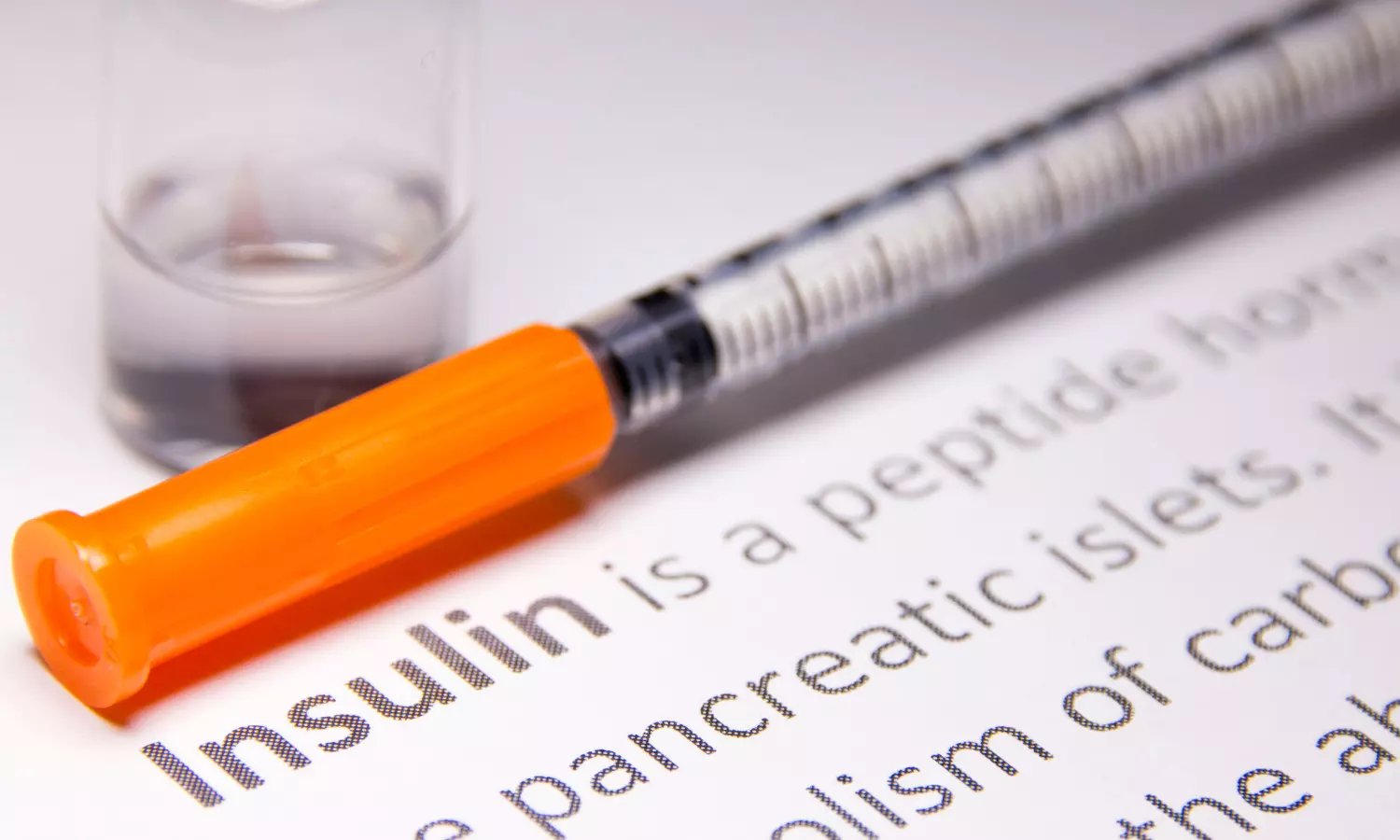Insulin degludec 3-times weekly Less Effective Than insulin glargine once-daily in Short-Term Glycemic Control: Study
- byDoctor News Daily Team
- 13 September, 2025
- 0 Comments
- 0 Mins

Researchers have found in a new study that in short-term follow-up, insulin degludec 3-times weekly (3TW) was less effective than once-daily IGlar in controlling blood glucose, though both had similar safety profiles. Larger multicenter trials are needed to assess their overall benefit-risk ratio for clinical use. The study was published in theBritish Journal of Hospital Medicineby Kamrul-Hasan and colleagues. Effective blood glucose control in T2DM continues to be the foundation of treatment to avoid complications. Conventional therapy usually involves daily injections of insulin glargine (IGlar OD), which can be inconvenient for certain patients. Insulin degludec (IDeg), on the other hand, has a more prolonged action profile, allowing thrice-weekly injections (IDeg 3TW), which can be less burdensome. Clinical evidence comparing these two therapeutic approaches in effectiveness and safety has thus far been sparse and inconsistent. To date, no systematic review and meta-analysis to inform practice had been conducted. The study team searched MEDLINE (via PubMed), Scopus, Cochrane Central Register, and ClinicalTrials.gov for RCTs comparing IDeg 3TW as an intervention and IGlar OD as a control in adult patients with T2DM. The search was limited to trials initiated from the outset to 30 July 2024. Primary outcome was glycated hemoglobin (HbA1c) change, and secondary outcomes were other glycemic parameters as well as adverse events. Data analysis with random-effects models was done using the RevMan Web tool, and results were presented as mean difference (MD), odds ratio (OR), or risk ratio (RR) with 95% confidence intervals (CIs). Key Findings: • Three good-quality RCTs with 1171 patients and duration 16–26 weeks were included in the meta-analysis. • HbA1c reduction: IDeg 3TW was 0.27% less effective (MD 0.27%, 95% CI [0.14, 0.39], p < 0.0001) • Nine-point self-monitored blood glucose profile: Less improvement with IDeg 3TW (MD 0.45 mmol/L, 95% CI [0.22, 0.67], p < 0.0001) • Proportion achieving HbA1c <7%: The OR was low in the IDeg 3TW compared with the IGlar OD group (OR 0.69, 95% CI [0.53, 0.89], p = 0.005). • Curiously, IDeg 3TW had a modestly lower insulin dose requirement (MD –0.07 U, 95% CI [–0.13, –0.01], p = 0.02) than IGlar OD but was not reflected in better glycemic control. • Fasting plasma glucose: MD 0.37 mmol/L, 95% CI [–0.19, 0.93], p = 0.19 • Body weight change: MD 0.04 kg, 95% CI [–0.46, 0.55], p = 0.86 • Physical health score: MD 0.21, 95% CI [–0.62, 1.04], p = 0.62 • Mental health score: MD –0.02, 95% CI [–1.05, 1.01], p = 0.97 • Confirmed hypoglycemia: RR 1.16, 95% CI [0.83, 1.62], p = 0.38 • Nocturnal hypoglycemia: RR 1.18, 95% CI [0.49, 2.84], p = 0.71 • Any adverse events: RR 1.04, 95% CI [0.84, 1.30], p = 0.71 • Serious adverse events: RR 1.43, 95% CI [0.77, 2.65], p = 0.25 •Injection-site reactions: RR 1.29, 95% CI [0.56, 2.96], p = 0.55 Thrice-weekly insulin degludec was inferior to once-daily insulin glargine for glycemic control at 16–26 weeks in type 2 diabetes adults, while both treatments were equally safe. Greater multicenter RCTs with more prolonged follow-ups are required to further evaluate the benefit-risk ratio and to identify the best candidates for IDeg 3TW therapy. Kamrul-Hasan, A. B. M., Borozan, S., Fernandez, C. J., Dutta, D., Nagendra, L., & Pappachan, J. M. (2025). Thrice-weekly insulin degludec versus once-daily insulin glargine in insulin-naïve patients with type 2 diabetes mellitus: A systematic review and meta-analysis. British Journal of Hospital Medicine (London, England: 2005), 86(7), 1–16. https://doi.org/10.12968/hmed.2024.0716
Disclaimer: This website is designed for healthcare professionals and serves solely for informational purposes.
The content provided should not be interpreted as medical advice, diagnosis, treatment recommendations, prescriptions, or endorsements of specific medical practices. It is not a replacement for professional medical consultation or the expertise of a licensed healthcare provider.
Given the ever-evolving nature of medical science, we strive to keep our information accurate and up to date. However, we do not guarantee the completeness or accuracy of the content.
If you come across any inconsistencies, please reach out to us at
admin@doctornewsdaily.com.
We do not support or endorse medical opinions, treatments, or recommendations that contradict the advice of qualified healthcare professionals.
By using this website, you agree to our
Terms of Use,
Privacy Policy, and
Advertisement Policy.
For further details, please review our
Full Disclaimer.
Recent News
Pfizer files lawsuit against Metsera, its Director...
- 02 November, 2025
Health Ministry achieves 3 Guinness World Records...
- 02 November, 2025
Roche gets CE mark for Elecsys Dengue Ag test to d...
- 02 November, 2025
Aadhaar authentication voluntary for NBE exams, cl...
- 02 November, 2025
Daily Newsletter
Get all the top stories from Blogs to keep track.


0 Comments
Post a comment
No comments yet. Be the first to comment!